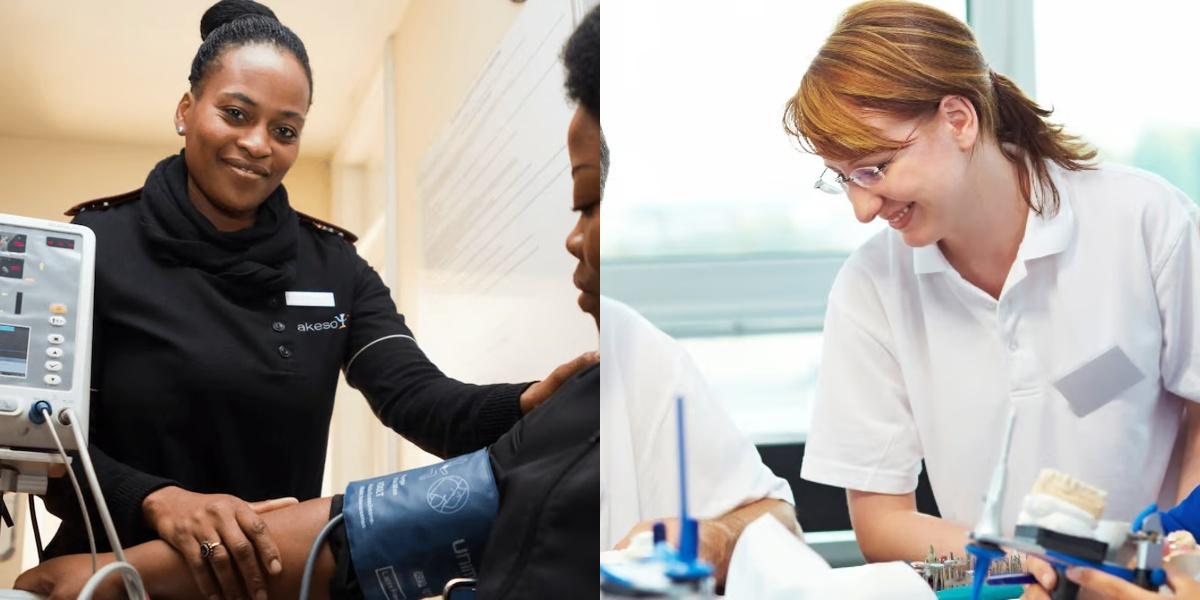Patient Care Technician vs Psychiatric Technician

Key Points:
- Patient Care Technicians assist patients with daily living activities; Psychiatric Technicians provide care and support for individuals with mental health or substance abuse issues.
- Patient Care Technicians typically earn a higher median salary than Psychiatric Technicians.
- Both roles are in high demand, but the job market for Patient Care Technicians may be slightly more extensive.
- Both roles require in-person training, but the duration and specific curriculum may vary.
- The training for Patient Care Technicians is generally less expensive and shorter than the training for Psychiatric Technicians.
Are you interested in a career in healthcare but unsure which path to take? Two options to consider are becoming a Patient Care Technician or a Psychiatric Technician. While both professions involve caring for patients, there are key differences between the two. In this blog post, we will explore the roles and responsibilities of each profession, the education and training required, and the career outlook and salary potential for both Patient Care Technicians and Psychiatric Technicians.
Patient Care Technician vs Psychiatric Technician: Career Outlook and Salary
Patient Care Technician:
- According to the Bureau of Labor Statistics (BLS), the employment of Patient Care Technicians is projected to grow 8% from 2020 to 2030, which is faster than the average for all occupations.
- The median annual wage for Patient Care Technicians was $30,830 in May 2020, according to the BLS.
Psychiatric Technician:
- According to the BLS, the employment of Psychiatric Technicians is projected to grow 6% from 2020 to 2030, which is about as fast as the average for all occupations.
- The median annual wage for Psychiatric Technicians was $32,020 in May 2020, according to the BLS.
Final Thoughts
Both Patient Care Technicians and Psychiatric Technicians play vital roles in the healthcare field, providing care and support to patients in need. While Patient Care Technicians work in a variety of healthcare settings and care for patients of all ages and medical conditions, Psychiatric Technicians specialize in providing care for individuals with mental illnesses or developmental disabilities in mental health facilities. The education and training requirements for each profession also differ, with Patient Care Technicians typically completing a vocational training program and Psychiatric Technicians completing a postsecondary certificate or associate degree program. The career outlook for both professions is positive, with projected job growth and competitive salaries. Ultimately, the choice between becoming a Patient Care Technician or a Psychiatric Technician depends on your interests, skills, and desired patient population.
Dreambound's educational programs cater to aspiring individuals seeking diverse opportunities. Gain a more comprehensive understanding of the potential within these two vocations by exploring further details at:

Marce Arnejo is part of the Sales team at Dreambound. Her role involves seeking out schools and institutions to provide valuable opportunities for students seeking a career in the healthcare sector. Beyond her professional life, Marce is passionate about music and gaming. She finds joy in exploring various genres of music and using gaming to unwind and immerse herself in virtual worlds. Her diverse interests enrich her personal life and contribute to her work by bringing new ideas and creativity.



